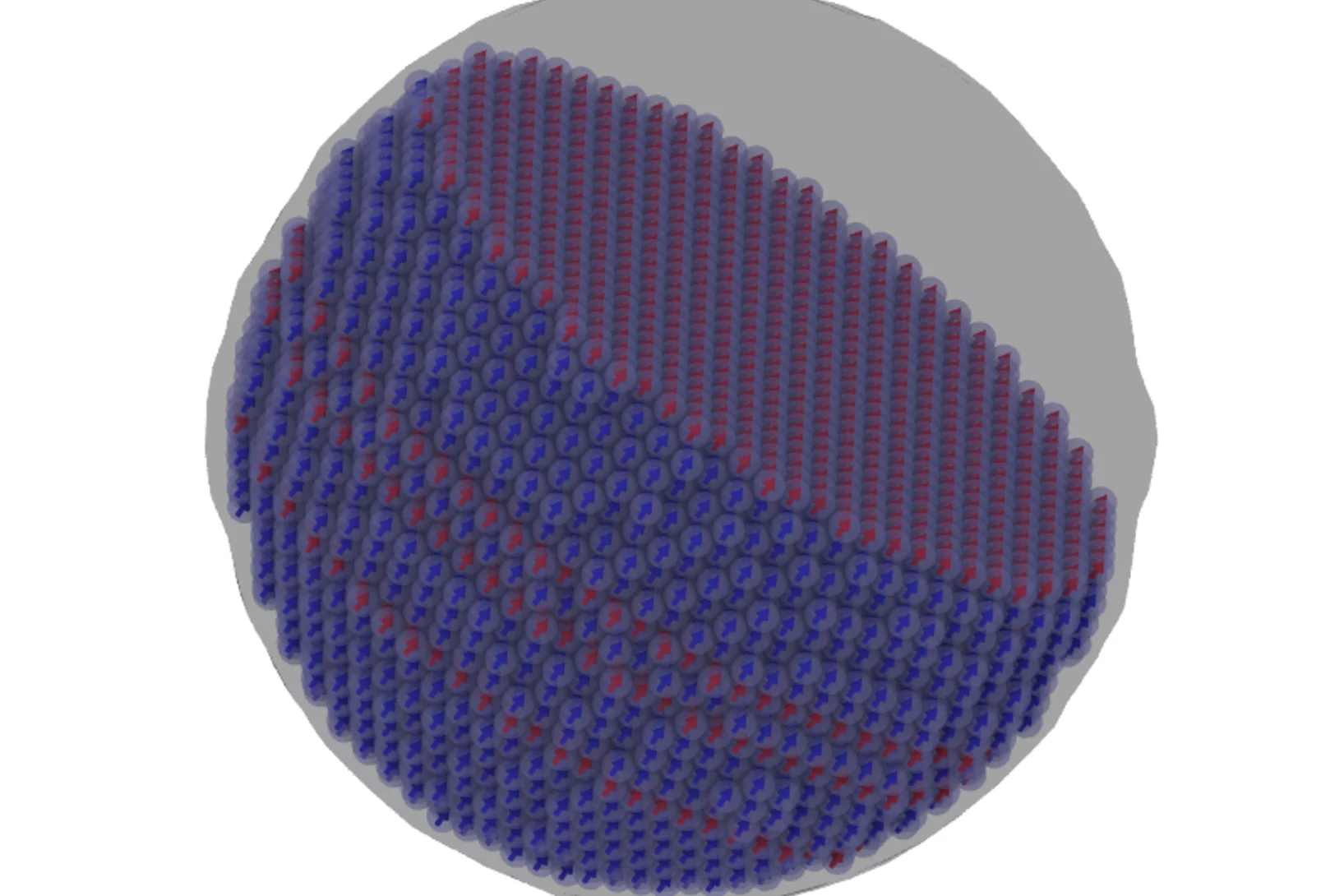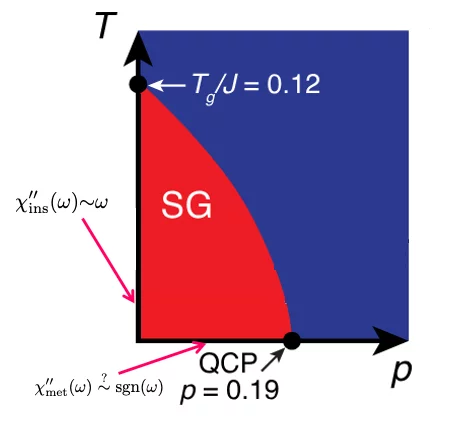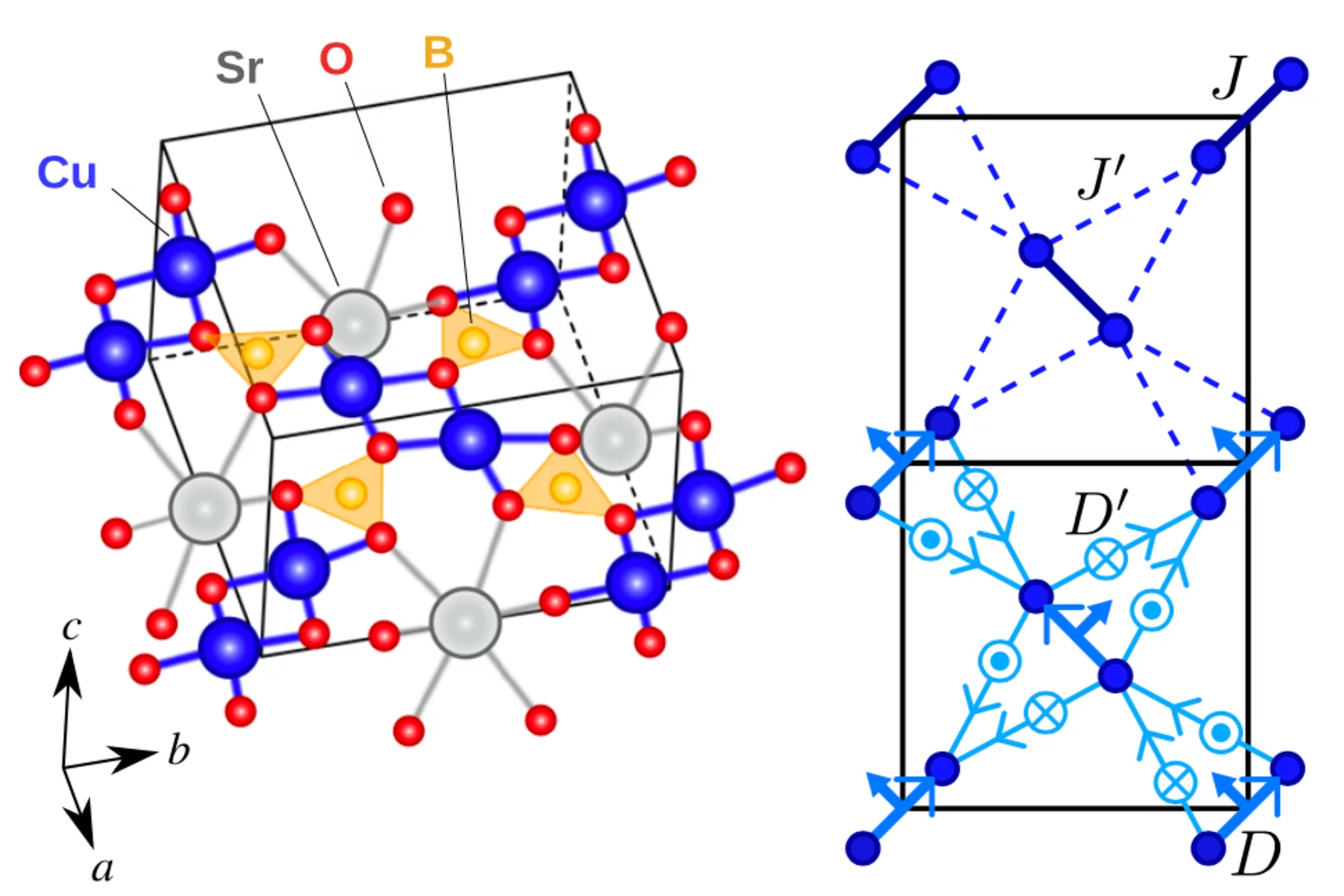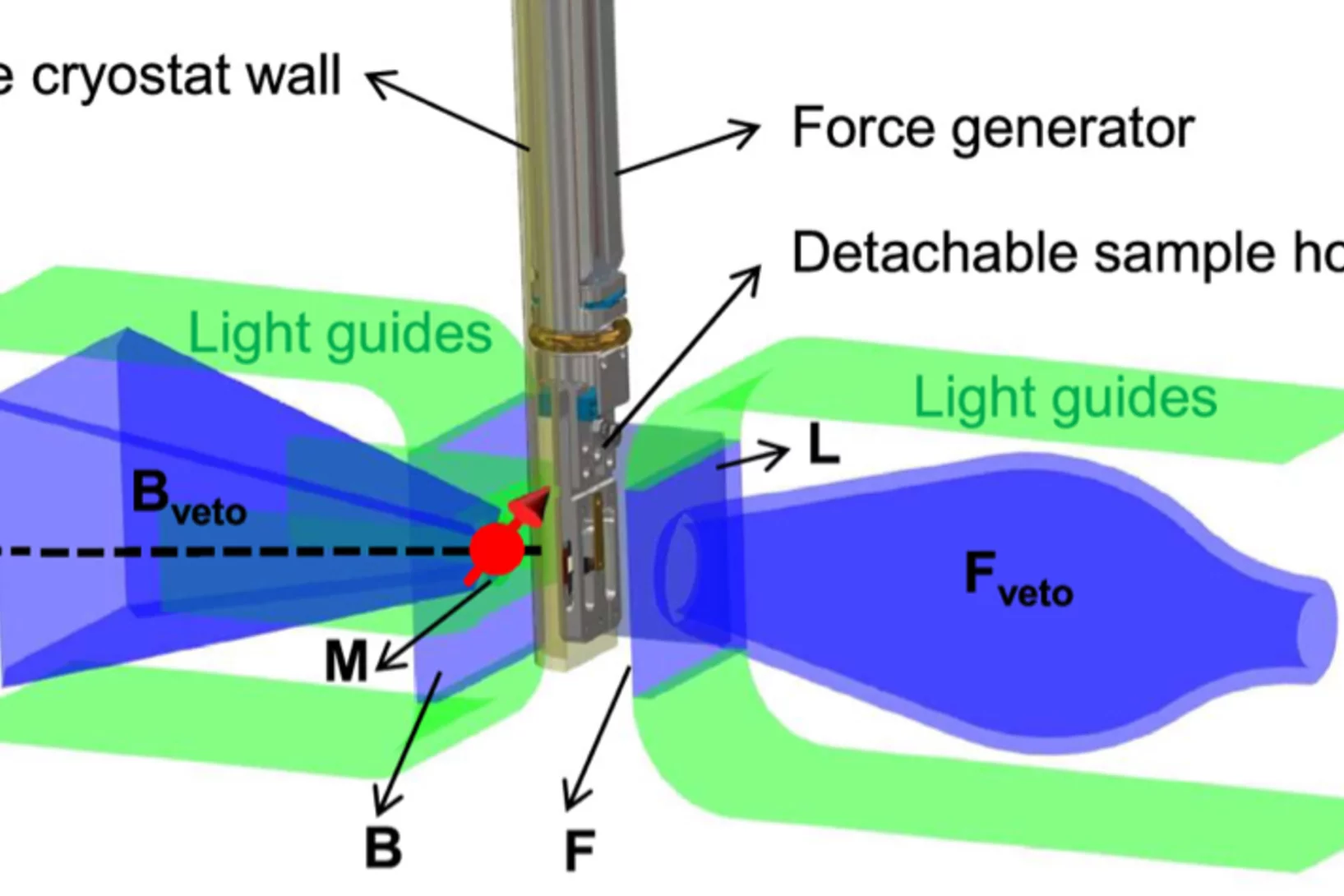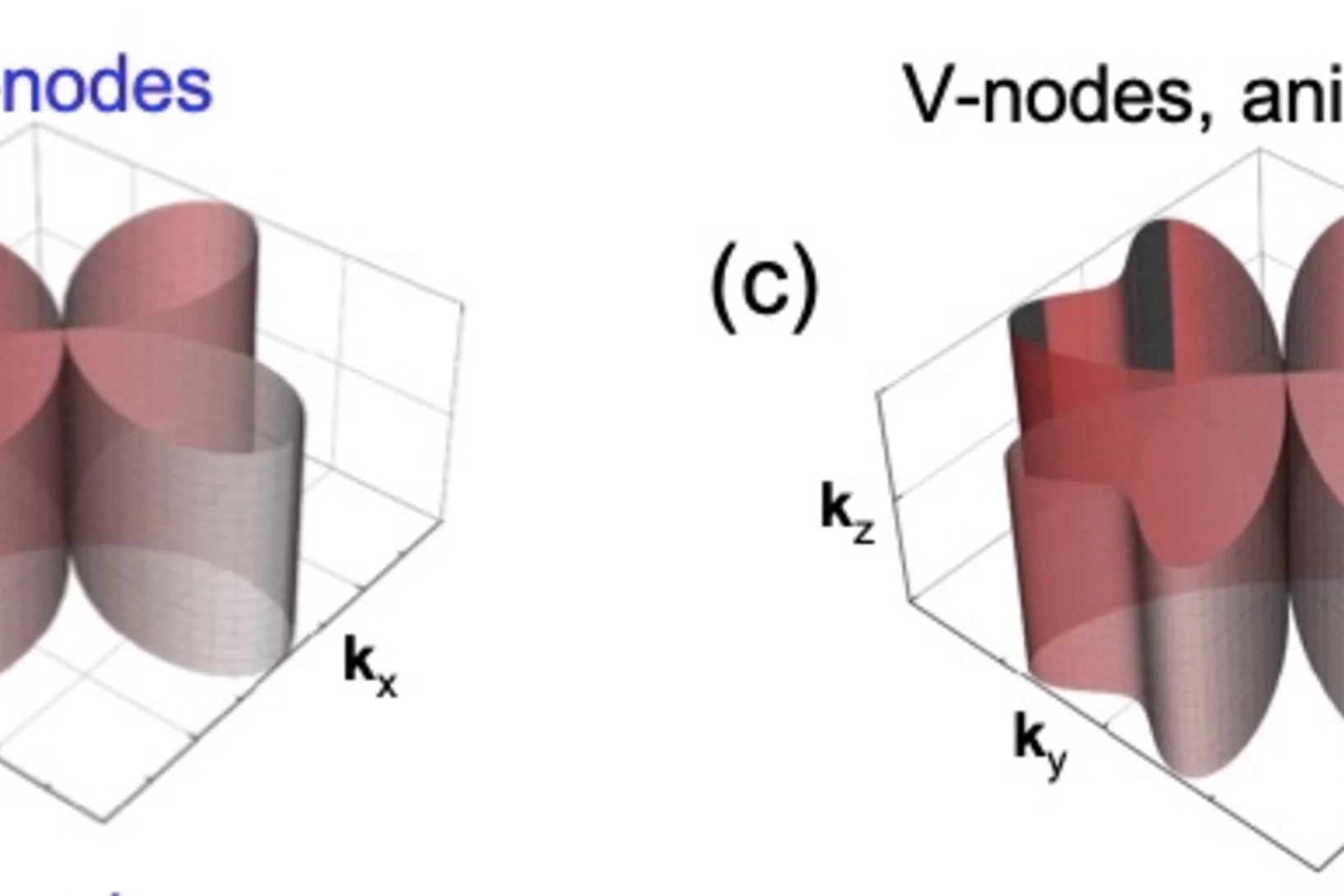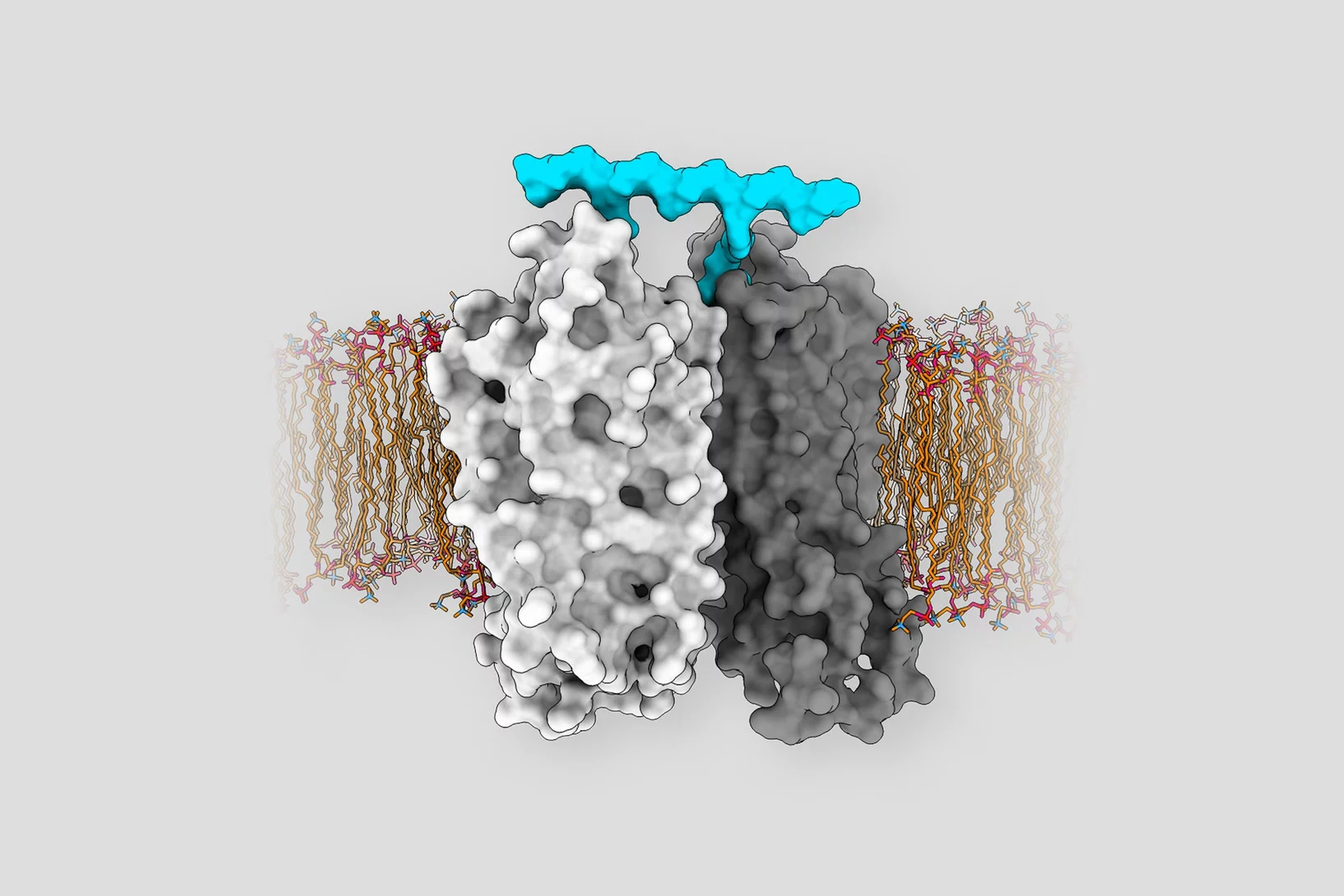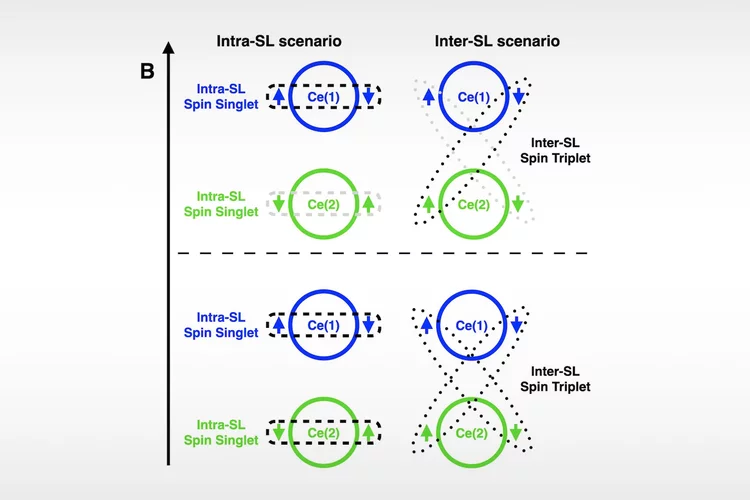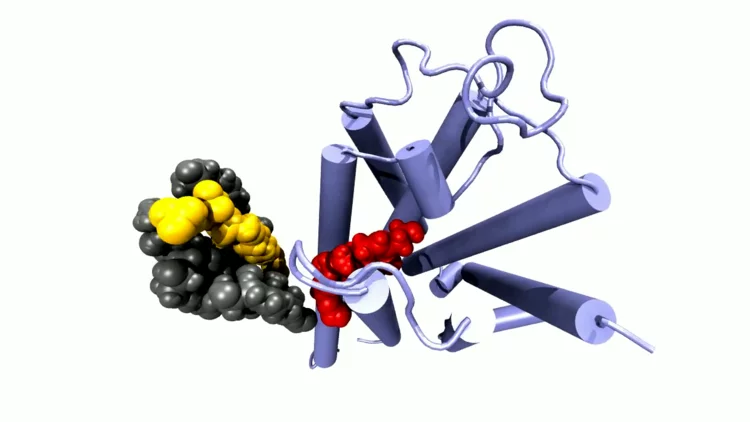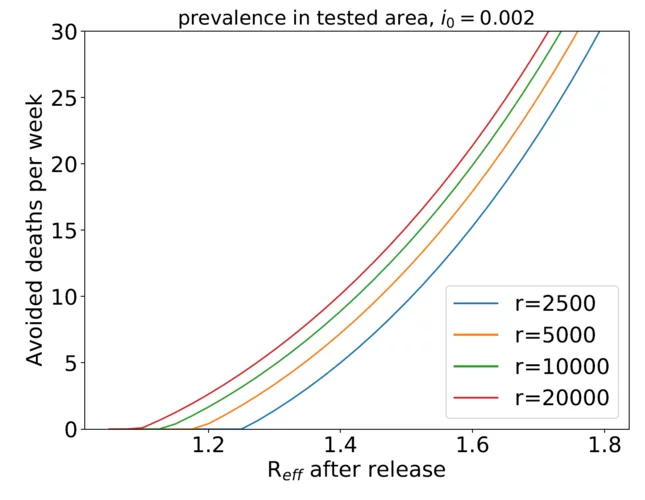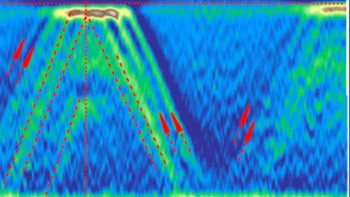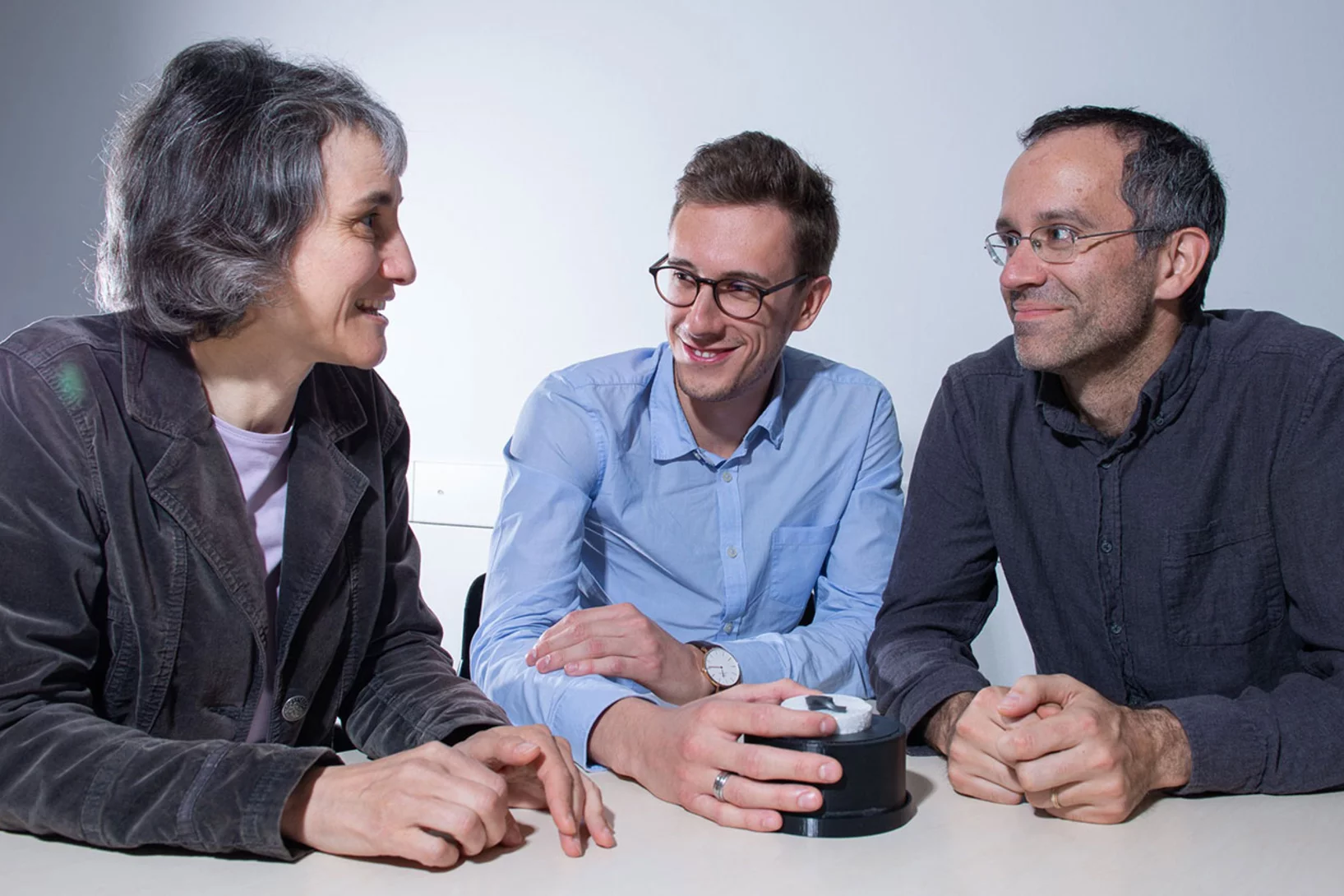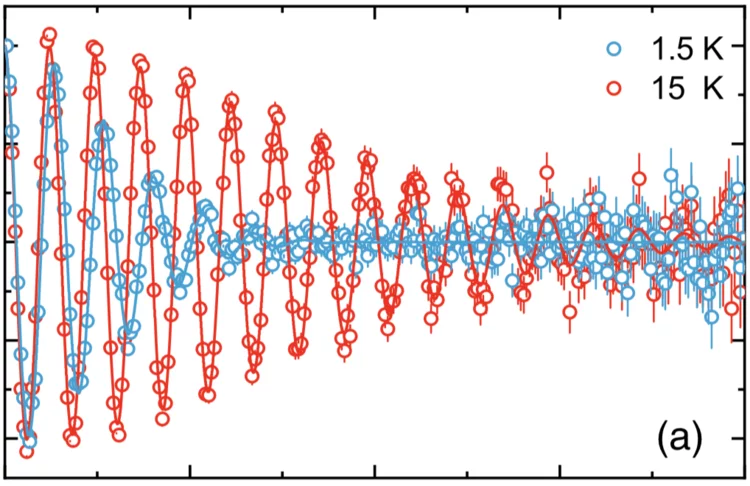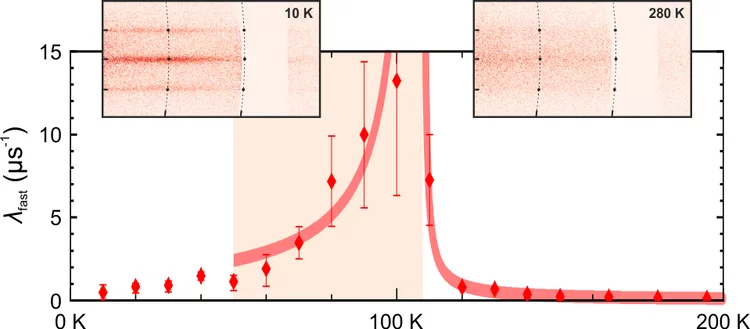Show filters
Defect structure controls the thermal magnetic switching rate of nano-sized metallic particles.
Past experiments done at the Paul Scherrer Institut, probed the thermal switching properties of nano-sized metallic magnetic particles
Exact solution of the classical and quantum Heisenberg mean field spin glasses
We solve and elucidate the physics of quantum Heisenberg spins glasses, which governs the local moments in randomly doped, strongly correlated materials.
Solid-state qubits: Forget about being clean, embrace mess
So says new recipe for dense arrays of qubits with long lifetimes.
Field-induced bound-state condensation and spin-nematic phase in SrCu2(BO3)2 revealed by neutron scattering up to 25.9 T
In quantum magnetic materials, ordered phases induced by an applied mag- netic field can be described as the Bose-Einstein condensation (BEC) of mag- non excitations. In the strongly frustrated system SrCu2(BO3)2, no clear magnon BEC could be observed, pointing to an alternative mechanism, but the high fields required to probe this physics have remained a barrier to detailed investigation.Here we exploit the first purpose-built high-field neutron scattering facility to measure ...
Designing the stripe-ordered cuprate phase diagram through uniaxial-stress
Understanding the degree to which charge-stripe, spin-stripe, and superconducting orders compete/coexist is paramount for elucidating the microscopic pairing mechanism in the cuprate high-temperature superconductors. We explore the tunability of magnetism, superconductivity, and crystal structure in the stripe phase of the cuprate La2−xBaxCuO4, by employing complementary techniques under compressive uniaxial stress in the CuO2 plane. Our results show a sixfold increase ...
In-Plane Magnetic Penetration Depth in Sr2 RuO4 : Muon-Spin Rotation and Relaxation Study
We report on measurements of the in-plane magnetic penetration depth (λab) in single crystals of Sr2RuO4 down to ≃0.015 K by means of muon-spin rotation-relaxation. The linear temperature dependence of λ−2ab for T≲0.7 K suggests the presence of nodes in the superconducting gap. This statement is further substantiated by observation of the Volovik effect, i.e., the reduction of λ−2ab as a function of the applied magnetic field. The experimental zero-field ...
Complete field-induced spectral response of the spin-1/2 triangular-lattice antiferromagnet CsYbSe2
Fifty years after Anderson’s resonating valence-bond proposal, the spin-1/2 triangular-lattice Heisenberg antiferromagnet (TLHAF) remains the ultimate platform to explore highly entangled quantum spin states in proximity to magnetic order. Yb-based delafossites are ideal candidate TLHAF materials, which allow experimental access to the full range of applied in-plane magnetic fields. We perform a systematic neutron scattering study of CsYbSe2, first proving the Heisenberg character of the interactions and quantifying the second-neighbor coupling.
Graphene’s magic in a magnet
Neutron scattering reveals rich magnetic topology in the magnetic equivalent of graphene.
Blick in die magnetische Zukunft
PSI-Forschende beobachten erstmals spezifisches Verhalten von magnetischem Eis.
Mobile excitons as neutral information carriers
These quasiparticles have the potential to revolutionise electronics - if they can move. Mobile excitons have now been observed for the first time in a metal.
Biased signalling for better drugs
A dream drug would provide a targeted therapeutic effect without side effects. Biased signalling could make this a reality. Publishing in PNAS, PSI researchers present a platform for biased signalling-based drug discovery.
Proteine auf Abstand
PSI-Forschende haben eine neue Methode entwickelt, um Proteine auf der Oberfläche von virusartigen Partikeln anzubringen.
Wie Abwehrzellen aktiviert werden
Forschende haben entschlüsselt, wie der CCR5-Rezeptor von Immunzellen angeschaltet wird. Die Erkenntnisse können dabei helfen, Therapien gegen AIDS und andere Krankheiten zu entwickeln.
Two scenarios for superconductivity in CeRh2As2
CeRh2As2, a nonsymmorphic heavy fermion material, was recently reported to host a remarkable temperature versus z-axis magnetic-field phase diagram with two superconducting phases. In this material, the two inequivalent Ce sites per unit cell, related by inversion symmetry, introduce a sublattice structure corresponding to an extra internal degree of freedom. In this work, we propose a classification of the possible superconducting states in CeRh2As2 from the two Ce-sites' perspective.
Rezeptorproteinen beim Verbiegen zuschauen
G-Protein-gekoppelte Rezeptoren vermitteln unzählige Prozesse im Körper. Im Interview erzählt PSI-Forscher Ramon Guixà, wie er die Rezeptormoleküle auf dem Bildschirm lebendig werden lässt.
Neuer Bauplan für stabilere Quantencomputer
PSI-Forscher haben gezeigt, wie sich schnellere und genauere Quantenbits erschaffen liessen. Die zentralen Elemente sind dabei magnetische Atome aus der Klasse der sogenannten Seltenen Erden, die gezielt in das Kristallgitter eines Materials eingebracht würden.
Benefit of random testing
With the imminent relaxation of socio-economic restrictions, it becomes vital to assess its effect on the prevalence of acute infections within the population, as rapidly as possible. Currently available monitoring instruments for the COVID-19 pandemic have an inherent time delay of about 14 days, as they rely on confirmed infections, hospitalizations, and death numbers. These methods give Reff(t) (the number of infections caused by a single infected person), but their delay is a significant disadvantage when restrictions are released. If after relaxation, Reff(t) rises above 1, one will not be able to react adequately before two weeks have passed during which time the prevalence could significantly rise. Here, we propose the use of random testing to shorten this reaction time, by obtaining direct and modeling dependent information on Reff(t). Through random testing of between 2500 and 20000 people per day, we find that over periods significantly shorter than two weeks, it becomes possible to detect a dangerous increase in Reff with reasonable confidence.
Spin fluctuation induced Weyl semimetal state in the paramagnetic phase of EuCd2As2
Weyl fermions as emergent quasiparticles can arise in Weyl semimetals (WSMs) in which the energy bands are nondegenerate, resulting from inversion or time-reversal symmetry breaking. Nevertheless, experimental evidence for magnetically induced WSMs is scarce. Here, using photoemission spectroscopy, we observe that the degeneracy of Bloch bands is already lifted in the paramagnetic phase of EuCd2As2. We attribute this effect to the itinerant electrons experiencing quasi-static and quasi–long-range ferromagnetic fluctuations.
Neues Material mit magnetischem Formgedächtnis
PSI-Forschende haben ein Material entwickelt, dessen Formgedächtnis durch Magnetismus aktiviert wird. Anwendungsgebiete für diese neue Art von Verbundstoffen sind beispielsweise Medizin, Raumfahrt, Elektronik oder Robotik.
EPFL Adjunct Professorship to Christopher Mudry
Dr Christopher Mudry, who joined PSI in 1999 and is Research Group Leader of the Condensed Matter Theory Group at PSI since 2009, was awarded the title of Adjunct Professor at EPF Lausanne with the following citation. "Dr Christopher Mudry is a highly acclaimed theoretical physicist. He is regarded as one of the world’s leading experts on the quantum field theory of condensed matter and in the rapidly developing field of the topological properties of matter."
Time-Reversal Symmetry Breaking in Re-Based Superconductors
To trace the origin of time-reversal symmetry breaking (TRSB) in Re-based superconductors, we performed comparative muon-spin rotation and relaxation (μSR) studies of superconducting noncentro-symmetric Re0.82Nb0.18 (Tc=8.8 K) and centrosymmetric Re (Tc=2.7 K).
Collective magnetism in an artificial 2D XY spin system
Two-dimensional magnetic systems with continuous spin degrees of freedom exhibit a rich spectrum of thermal behaviour due to the strong competition between fluctuations and correlations. When such systems incorporate coupling via the anisotropic dipolar interaction, a discrete symmetry emerges, which can be spontaneously broken leading to a low-temperature ordered phase.


